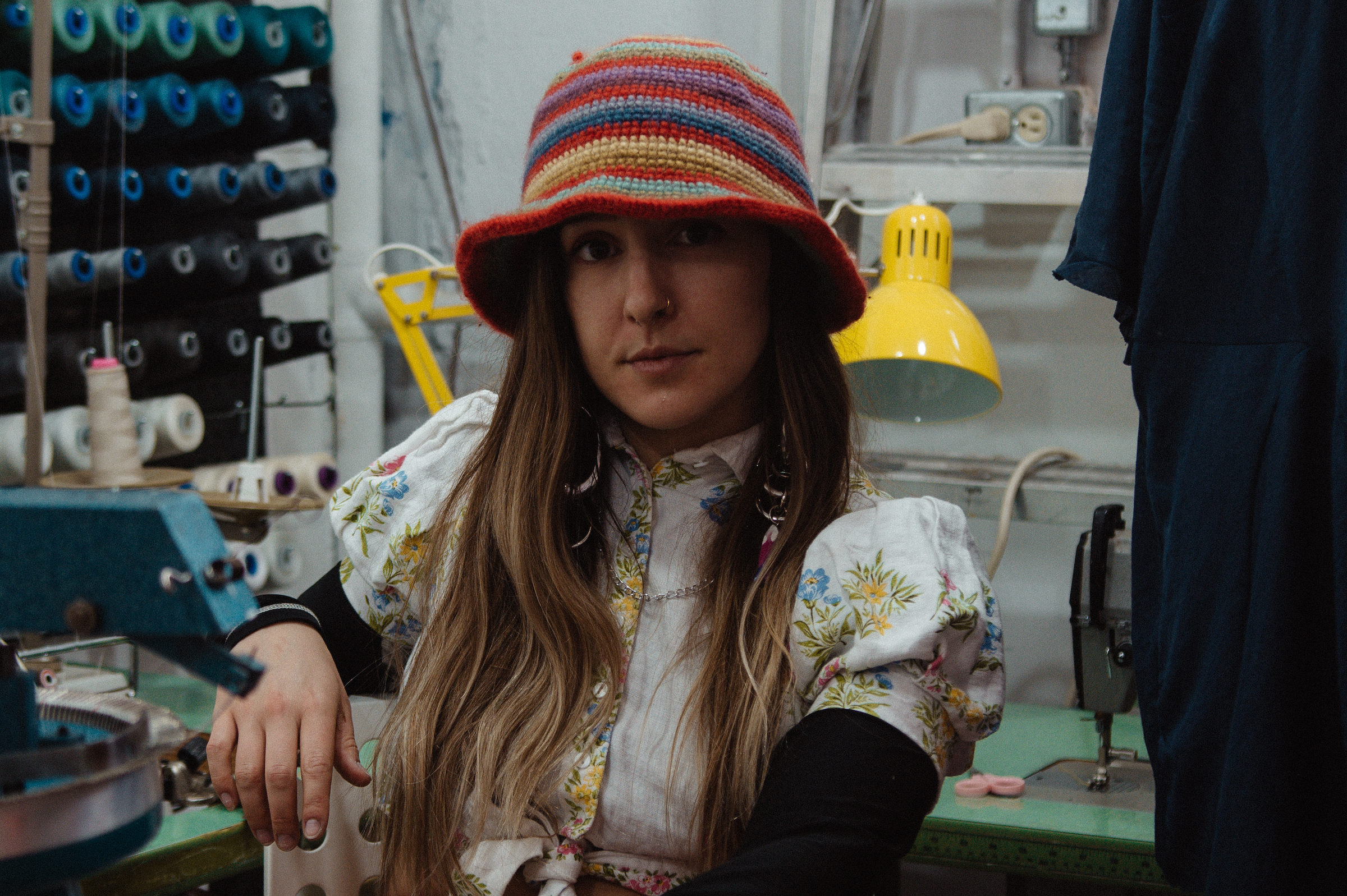Rubens is hosting a livestreamed-workshop on Sunday, April 25 that will focus on repurposing, mending knits and the process of finger knitting.
Since launching her eponymous line, sustainability-focused designer Olivia Rubens has been able to count numerous accomplishments on her CV including last year’s win at the International Talent Support competition in the Responsible Fashion award category. Rubens also recently joined the ranks of Reture, an e-comm platform that connects fashion creatives with consumers looking to give new life to old garments and accessories. In addition to crafting upcycled pieces to sell on the site, Rubens can also be tapped to update pieces from your closet, should you be so inclined. And on Sunday, April 25 at 11 a.m. EST, she’s hosting a livestreamed-workshop through Fashion Open Studio as part of Fashion Revolution Week. The event, which is open for registration now, will focus on repurposing, mending knits and the process of finger knitting. In advance of the workshop, we caught up with Rubens to learn more about her creative process and why she’s passionate about sustainable design.
How has your brand evolved from a sustainability standpoint?
Throughout my BA I was more into slow fashion. [Then] I won a competition that was done through Aveda called “In Your Jeans;” there was a massive pile of denim for us to use — it was like Project Runway, where they counted down for [the designers] to start choosing materials. I made a heavy hand-knit sweater from 15 pairs of jeans, and it was extremely rewarding to make something different from what it originally was. It was challenging to move into upcycling — I was more working with new materials that were sustainable and working on my dyeing practices. [But] I pushed to experiment more with upcycling during my Masters. I love [working with] denim specifically; I love pulling apart the fibres. There are so many things you can do with it and it’s super fun to work with and remake.
You also won the Responsible Fashion Award at the International Talent Source competition in 2020. Are you a naturally competitive person?
I think I’m naturally competitive, but it’s more a competition with myself, almost. If I’m put into a certain level — like with my BA or my Masters — I always try to do really well within that. It’s not competing with others, I just want to keep pushing myself and reaching the top of my potential. But this past year, I’ve taken time to slow down; especially since COVID hit, it’s like you’re going so fast and doing all these things and then you wonder, “Why am I going so fast?”
How did you get involved with Reture? Do you think this model of making clothes is the future of fashion?
I’m very flattered they asked me to be part of it. I’m excited to experiment with this different business model and help people fall in love with their clothing again and make it really special, or to transform something that a family member might have given them and make it their own. Whether it’s through dyeing something or making it a patchwork or shredding it and making it completely different, I think it’s so cool that this is an option. I think it’s going to redefine what being a designer is — I think we can be more adaptable and open-minded about working with other people’s [materials].
I hope that this is the future of fashion; it’s a really interesting way to provide accessibility to people who want to support designers but don’t necessarily have the means of buying into their existing collections. What you see right now is people doing custom work, and sometimes they might not have their own ‘voice’ in that. They’re doing what the client wants, period. What I find interesting about this is that the platform allows the client to pick which designer they like and decide how much design control they want to have; but the point is to get something with the designer’s point-of-view.
Designers are expected to make cheaper garments to broaden their market and that’s hard to do in a responsible way. The way that fashion is going, people are questioning consumerism and fast fashion and looking more towards utilitarian pieces and looking at their wardrobe to rejuvenate it. I’m hoping this will lead a huge change in how we look at our clothing.
Where do you see the future of dressing going?
I’ve been thinking so much about this and about my role in the industry. I love to create these crazy, fun pieces and I hope that they have a cherished life. That’s the point. But you can’t help but wonder about what you’re making from a sustainability standpoint. What I’m struggling with is that no matter how much criticism that exists around the industry, it’s still rocking on. And it’s frustrating. I’m really just hoping people think more about what they buy.
